Christopher Perryman, a former British soldier, did not enjoy life as a security guard protecting the HS2 line from eco-protestors. They called him a child molester and a bigot. So when Vladimir Putin invaded Ukraine last year, he decided to go there instead.
‘I hated HS2 – we were getting things thrown at us, and getting called every name you can think of. They called us the foot soldiers of fascism,’ says Perryman, who served in Iraq with the Royal Regiment of Fusiliers. ‘Then a mate told me that Ukraine’s President was asking for foreign military veterans to help. I’ve never liked bullies and Putin is a bully, so off I went.’ Perryman is now with a unit of western volunteers helping Ukrainian forces battle for the islands along the Dnipro river near Kherson, which is where I met him last month.
Like the HS2 eco-protestors, Perryman has yet to come face to face with a real fascist foot soldier. The Russians keep their distance, and so far, the closest he’s got to seeing one was a brief, rustling presence in some bushes a few hundred metres away, gone before he could train his rifle on it.
The turf that he is fighting for doesn’t even resemble a battlefield. The Dnipro’s islands are full of retirement homes, a sprawl of jerry-built holiday chalets like a Black Sea Isle of Sheppey. In normal times, pensioners would be pottering on their vegetable patches and making homebrew vodka. Compared with the grimy Donbas, with its slag heaps, trenches and tank battles, it looks quite literally like a backwater.
But the scrap for these marshy outposts is a fierce one. Whoever controls them can control traffic along the Dnipro, the waterway that leads north to Kyiv and splits Ukraine into east and west. Any Ukrainian units setting foot on the islands attract constant artillery fire, directed in by nosy Russian drones that buzz overhead like giant marsh mosquitoes. ‘Their artillery crews are pretty bloody good,’ says Perryman. ‘Iraq does not compare to this, it’s far more intense.’
Since December, he has done four missions along the Dnipro in a speedboat that weaves through ice floes. Any man overboard in full body armour is unlikely to survive. The speedboat then drops him off on the islands, where the volunteers help to protect Ukrainian-held sections against Russian advance.
The pensioners’ paradise is an infantryman’s nightmare. Homes fashioned from corrugated iron and shutterboard aren’t good at withstanding artillery. Patchworks of gardens and vegetable plots have far too many wire fences to get tangled in.
‘Because it’s marshy, you can’t dig trenches to hide in from the artillery,’ Perryman says. ‘The Russians know that the only place we can hide is in the houses, and that if they smash them up, there’s nowhere else to go.’
On his first stint, a Russian shell landed just ten feet from him and two comrades, he says. Luckily, it was daytime, and the boggy ground had thawed into mud, which absorbed the impact.
On the third mission, a shell hit the house Perryman was sleeping in directly, destroying two walls. He woke up covered in bricks, bits of cupboard and garden soil. His grab bag by his side was shredded by shrapnel and his flak jacket resembled a dartboard, stuck with more than a dozen ‘flechettes’, tiny pieces of arrow-shaped shrapnel designed to maximise maiming injuries. ‘My kit was completely shredded, and I should have ended up in pieces myself,’ he says. ‘Why I didn’t, I’ve no idea.’
Ears ringing, he and two others withdrew to their comrades’ house nearby, which also took a hit five minutes later, just as they got into the bunker.
To many, this might seem like an unrewarding soldiering experience: as at HS2, he is being pummelled by an enemy from afar, with no chance to hit back. It is, however, typical of most of Ukraine’s combat, be it on the Dnipro or in the Donbas. Soldiers can man the front lines for months without ever getting to shoot directly at the enemy. If Call of Duty brought out a war game based on this, no one would play it.
Yet it is also some of the toughest soldiering Perryman has done. Each mission – which lasts about a week – is one long, nerve-racking stakeout, waiting for trouble. The summer houses are unheated, and during the winter nights, when temperatures drop to minus 10°C, soldiers can’t even make tea for fear the drones may detect a stove light. There is little to do except guard duty and sleep – if the artillery, which sometimes comes in 100 times a day, permits it.
‘Mentally it’s exhausting,’ says Perryman. ‘You’re just waiting for the artillery, and also thinking “Will this be the day the Russians actually advance?”. That makes you apprehensive, but also excited, as finally it’s a chance to actually fight.’
He has no plans, though, to leave. Like many ex-British soldiers in Ukraine, he has never really thrived in civilian life, and is today part of a nomadic martial tribe that wanders the world’s hot spots. Many, like him, have previously done bodyguard work in Africa and the Middle East; two in his unit volunteered with Kurdish anti-Isis militias.
Perryman has an 11-year-old son back home, with a partner he’s no longer with. The boy knows Dad is out here, but thinks he’s just training Ukrainian troops. What does he say to those who think he has more of a duty to his child back home than he does to Ukraine?
He sighs. ‘A lot of people ask me that, and I can’t really come up with an answer. But if everyone in the second world war had said they weren’t going to fight because they had kids, we’d all be speaking in German. My son will either understand that, or he’ll grow up to hate me – that’s out of my control.’
‘Besides,’ he adds, ‘soldiering is the only thing I’m any good at.’ And at least Ukraine isn’t HS2.
Got something to add? Join the discussion and comment below.
Get 10 issues for just $10
Subscribe to The Spectator Australia today for the next 10 magazine issues, plus full online access, for just $10.
You might disagree with half of it, but you’ll enjoy reading all of it. Try your first month for free, then just $2 a week for the remainder of your first year.

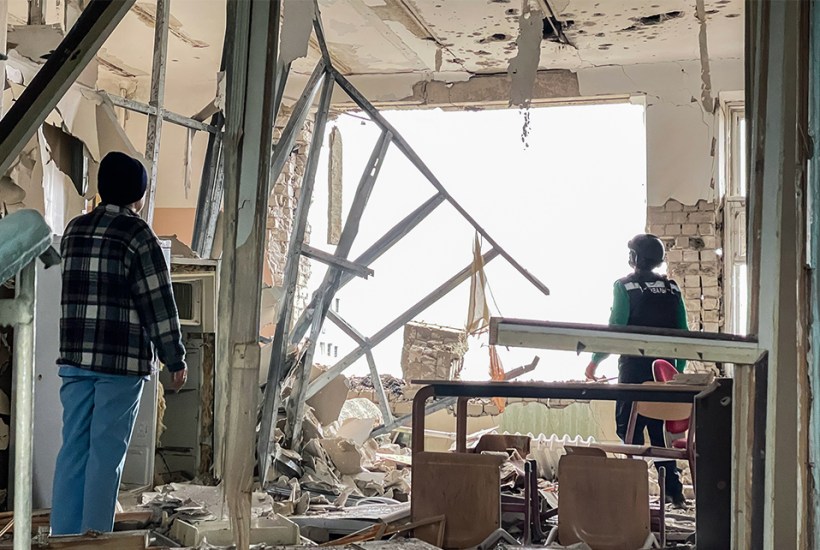
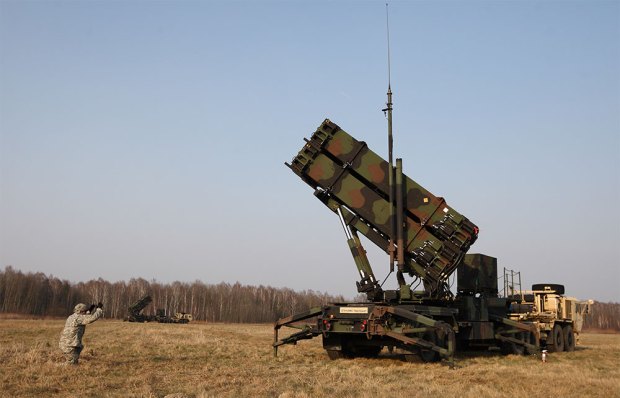
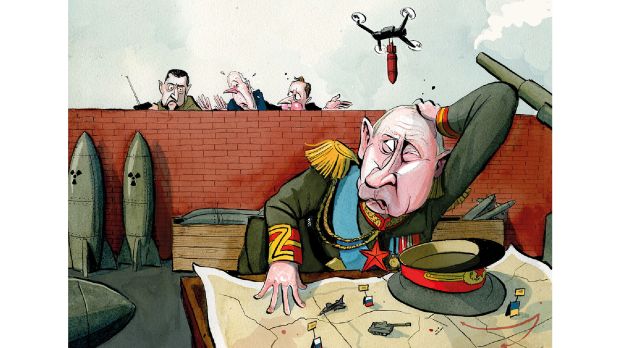

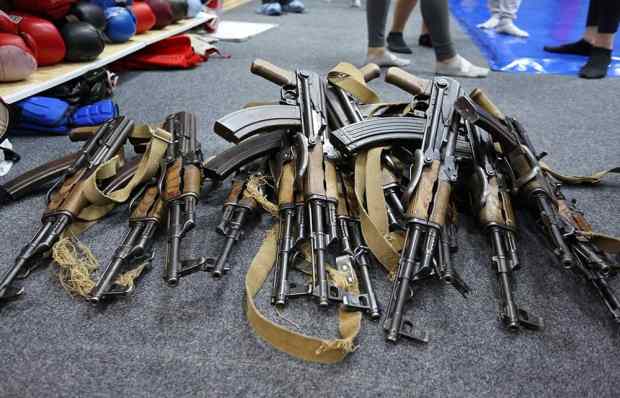
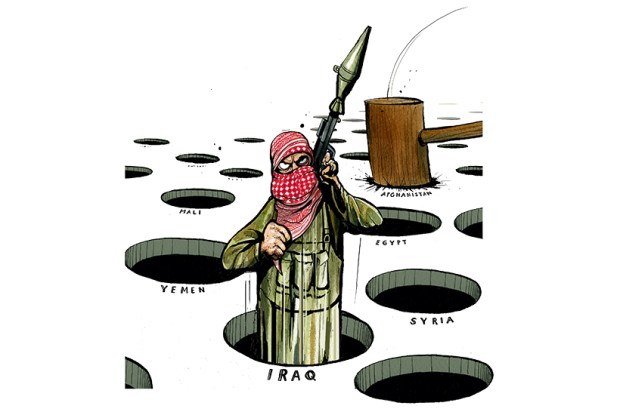







Comments
Don't miss out
Join the conversation with other Spectator Australia readers. Subscribe to leave a comment.
SUBSCRIBEAlready a subscriber? Log in